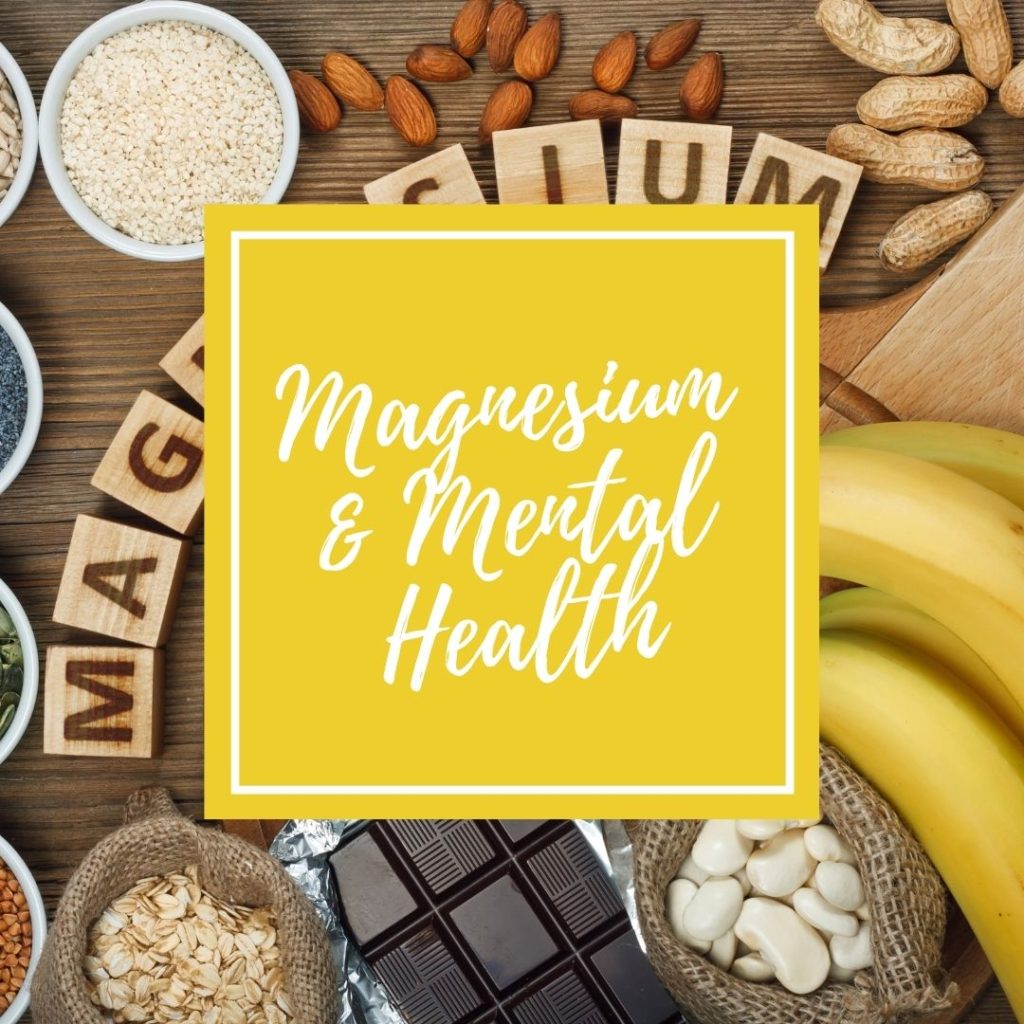My Top Minerals for Healthy Mood
There are hundreds of neurotransmitters in the brain and when it comes to maintaining a healthy mood and optimal cognition their balance is crucial. Production of neurotransmitters however requires a vast number of different nutrients. If the body is malnourished then it is impossible for the brain to function optimally.
What is often overlooked is the key role that certain trace minerals play when it comes to neurotransmission and mood. Certain minerals are key for the synthesis, degradation and reuptake of neurotransmitters which in turn will influence our mood and cognition.
While no nutrient works in isolation it is worth highlighting certain key minerals that play a key role in optimal mood.
Magnesium

Magnesium is probably one of the most frequent mineral deficiencies I see in clinic. Magnesium supports healthy mood, healthy eating behaviour, healthy stress response and quality sleep. Magnesium is one of the most relevant when it comes to maintaining healthy response to stress and yet stress affects the body’s retention of magnesium. So the more stressed you are the more you are going to need magnesium. Magnesium also supports GABA receptor function. GABA is a well known neurotransmitter for keeping us calm and focused and this is one reason why magnesium is known for its calming effect.
Top Food Sources
Dark chocolate and cocoa powder, Leafy greens, avocado, nuts especially almonds, Brazil nuts and cashew nuts, beans and pulses including soy, seeds like pumpkin, chia and flaxseed, oats, oily fish, bananas.
Zinc
An association between zinc status and mental health has been recognised since the 1920s. This is because there is an intimate relationship between zinc and the function of neurotransmitters. Optimising levels is known to improve mood, healthy eating behaviour, appetite and sleep quality.
Practically all enzymatic reactions in the brain require zinc. It maintains protein structure, gene expression, plays an important role in the hippocampus making it important for learning and memory. Zinc is needed for the synthesis and function of neurotransmitters such as serotonin and dopamine which play a key role when it comes to mood.
Zinc is critically important for taste buds – one of the first symptoms of zinc deficiency is often low appetite or a lack of taste. Many digestive enzyme require zinc to function too. So without sufficient zinc it is harder to digest and absorbed foods. As it is required for the synthesis of melatonin it is just as important when it comes to our quality of sleep. Animal products are high in zinc so when you switch to a more plant based diet there is a greater risk of not getting optimal levels. This is particularly important during puberty when your need for zinc is higher. Just like magnesium when you are under stress your body requires more zinc. You also lose zinc during sweating so if you exercise intensely or for long periods of time there is a greater need to ensure levels are optimal. While you can check for plasma levels of zinc and red blood cell zinc levels there are often functional markers of low levels. I find that low levels of alkaline phosphatase (a liver enzyme which is zinc dependent) to be another good marker. There are many forms of zinc supplements – it is best to take one with a meal as you can feel a little nauseous if you take it on an empty stomach.
Top Food Sources
Red meat, poultry, legumes, seeds like hemp, sesame, pumpkin and sunflower, nuts including cashew, pine nuts and almonds, dairy, eggs, oats and quinoa.

Copper
Both copper and zinc are essential minerals but they work together. Too much copper can deplete zinc and zinc depletion can increase copper levels. Low copper is often linked to people taking mega doses of zinc.
Excess copper is typically more common and can result from excess estrogen, use of prescription medications containing copper, smoking, too much copper in drinking water (old pipes) and manganese deficiency.
Lithium
Lithium is naturally found in our water supply but levels vary widely geographically. Lithium has been used since the 1950s for supporting mood. Interestingly lithiated products were common in the early 20th Century. One of these was 7 Up which contained lithium citrate until 1950 and marketed as a hangover cure and health tonic.
Today there is much research into the use of very low dose supplements in supporting mood, depression, cognition health and conditions such as Alzheimer’s. Lithium has been shown to support levels of Brain Derived Neurotrophic Factor (BDNF) which may explain its beneficial role for Alzheimer’s Disease.
Top Food Sources
Primarily sources of lithium are grains and vegetables as well as drinking water. Good sources include mushrooms, cucumbers, red cabbage, black tea, milk, eggs, pork, beef and tomatoes. Food and tap water is estimated to provide around 0.1-10mg day. Supplements of lithium orotate/ citrate are used at very low doses anything from 0.5-10mg/day

Chromium
Another great trace mineral for balancing mood. Chromium is well known to help with blood sugar balance but it is also required for function of serotonin receptor 5HT2A. Studies have shown it can be helpful for controlling cravings, supporting memory and mood including PMS mood changes as well.
Top Food Sources
Chromium is found in shellfish like oysters, shrimp, mussels as well as dates, tomatoes, mushrooms and Brazil nuts.

We are all different of course but ensuring sufficient levels of these key minerals can help with the function of neurotransmitters and in turn mood and memory.

